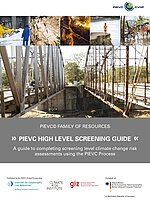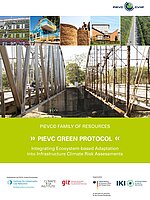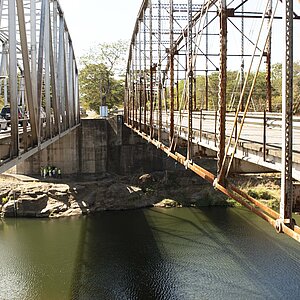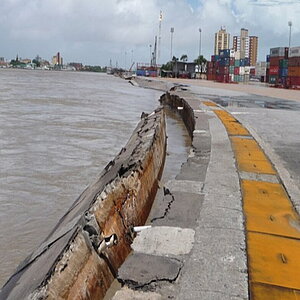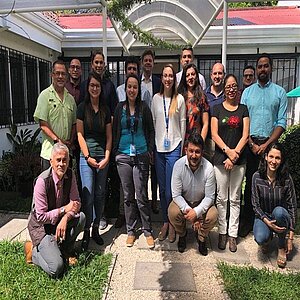Climate risks in Africa’s Nile region – new climate proofing concepts for the Greater Nile Region

Mr. Maro Andy Tola from the Nile Basin Initiative (NBI) shares on Transboundary climate change challenges in the Nile Basin and its riparian countries and their vision as a new regional climate service provider.
During a visit to Germany in June 2019, Mr. Maro Andy Tola from the Nile Basin Initiative's NELSAP Office in Kigali had the opportunity to talk about transboundary climate change challenges in the Nile Basin and its riparian countries and shared the NBI's vision as a new regional climate service provider.
The Nile Basin Initiative (NBI) is the only supranational institution, mandated by the head of states of the Greater Nile Region's 10 member countries to plan (and partly execute) critical irrigation and other water related infrastructure in cross-border areas of the Nile River. He highlighted on the importance of climate sensitive transboundary water utilization and management, outlining the vital role of the NBI in working on the provision and creation of institutionalized mechanisms for mediating diverging national interests particularly over water use.

The vision for the NBI is to become the principle hub for Climate Services in the region to compensate weaknesses of national hydro met services, to bundle regional competence and built strong alliances with other regional and international climate competence centers. Hereby, NBI fills the gap between the provision of international capacities in climate services vis-a-vis local needs.
Mr. Tola's mission to Germany emerged from a fruitful cooperation with GIZ. Commissioned by BMU-IKI, the Global Project "Climate Services for Infrastructure Investments (CSI)" has worked together with the NBI on the following three action tracks, which were presented to BMU and Z.U.G. colleagues in Berlin:
- Development of a Climate Proofing guideline to support member countries in developing climate sensitive bankable projects;
- Development of a Climate Service Action Plan (CSAP) based on NBI's climate strategy;
- Piloting the application of climate risk assessment methodologies of transboundary related water resource infrastructure projects to build capacity and provide substantial input for the new NBI Climate Proofing guideline;
- Advisory support provided by the CSI project through GIZ and its implementing partners Engineers Canada and Deutscher Wetterdienst (DWD).
During his stay in Germany, Mr. Tola also visited the International Commission for the Protection of the River Rhine (ICPR). Whereas, NBI's work is centered on providing capacity development to its member states, ICPR's role is limited to the coordination of political and administrative processes. Both institutions, however, share a common task set regarding transboundary challenges around flood risk management and how to provide knowledge products to prepare well for climate-induced changes in hydrological cycles, and to ensure transport-, food and energy security. Further exchange between the two organizations is expected in the future.

This notion for more international exchange became even more apparent in the panel discussion Mr. Tola joined at the UNFCCC's SB session side event "Climate Services for Climate-Risk-Informed Infrastructure Planning and Management". He emphasized the need for improved climate services to assess future risks for infrastructure with colleagues from the Tanzanian Hydro-Met Service, the World Meteorological Organization (WMO), the European Investment Bank (EIB), the Global Environmental Facility (GEF) and GIZ.
The link has been copied to the clipboard
Contact
IKI Office
Zukunft – Umwelt – Gesellschaft (ZUG) gGmbH
Stresemannstraße 69-71
10963 Berlin






